1. specific
1.1. Target groups
1.1.1. Training
1.1.2. online
1.1.3. youth club open
1.1.4. residential care
1.1.5. therapy
1.1.6. crime
1.2. Protocol for using media
1.2.1. proffesional profile
1.2.1.1. protocols for that
1.2.1.2. lifelong learning
1.2.2. time management - online versus off line
1.2.3. client data management
1.2.3.1. privacy, safety
1.3. Skills
1.3.1. language
1.3.1.1. expression
1.3.1.2. smileys
1.3.1.3. read between the lines
1.3.2. selfcontrol technics
1.4. Media Literacy
1.4.1. Cyberbullying
1.4.1.1. What
1.4.1.2. Tools
1.4.1.3. How to solve
1.4.2. dysfunctional use
1.4.2.1. addiction
1.4.3. Commercial awareness
1.4.4. Criticism to media
1.4.4.1. e-media
1.4.4.2. traditional
2. youth
2.1. flexible
2.1.1. change of platforms
2.1.2. lifelong learning
2.1.3. update and flexible management according to change and needs of the target group
2.1.3.1. new media from youth
2.1.3.2. changes in the use of media
2.2. relations
2.2.1. different understanding of "friend"
2.2.2. use the tools to communicate with youth
2.2.3. adhere to youth culture and language
2.2.4. identity: be what you want to be
2.2.5. Client has the lead
2.2.5.1. Give free space to youth
2.2.6. Learning parents about the topic
2.2.7. determine the skills
2.2.7.1. Clients
2.2.7.2. collegues
2.3. manage social media
2.3.1. trust versus "on risk" - grooming
2.3.2. promote online youth work
2.3.2.1. To clients
2.3.2.2. to collegues
2.3.3. what do they expect from us?
2.3.4. cyber bulliing
2.4. transparancy
2.4.1. goals (no hidden agenda)
2.5. creative use of digital competences in specific context
2.5.1. be able to promote online youth work for active inclusion
2.6. PDCA in a digital world
2.6.1. project management
3. general
3.1. social media
3.1.1. features of social media
3.1.2. communicate
3.1.2.1. instagram
3.1.2.2. what's app
3.1.2.3. viber
3.1.3. impact awareness
3.1.4. platform apps
3.1.5. goals
3.2. Knowledge about Mobile devices
3.2.1. smart phones
3.2.2. game consoles
3.2.3. tablets
3.2.4. portables
3.2.5. knowledge of apps
3.3. attitudes
3.3.1. interest in ICT
3.3.2. Netiquette
3.4. active use
3.4.1. safe use
3.4.1.1. critical on information
3.4.1.2. security awareness
3.4.1.2.1. knowledge of risks
3.4.1.3. knowledge of possibilities
3.4.1.4. risk management
3.4.1.5. safe space responsibility
3.5. represent your organisation in professional context
3.5.1. who has the right to communicate
3.5.2. organisation background
3.6. basic technical skills
3.7. problem solving skills
3.8. to use your organisation network multidisciplinary
3.8.1. legal support
3.8.2. other support
3.9. ethical issues
3.10. legal issiues
3.10.1. several laws / countries
3.10.2. laws - general, social

